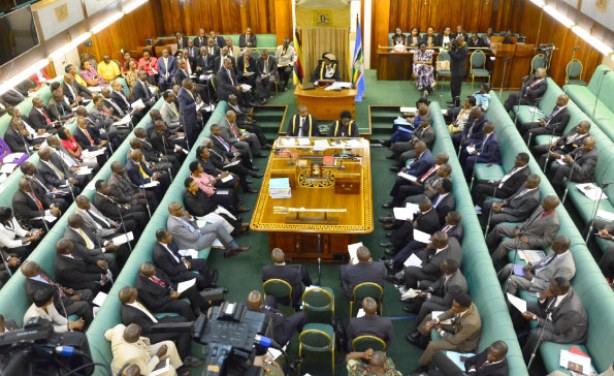Parliament adopts Shs 29tn budget

By Moses Kyeyune
Parliament has his evening adopted the Shs 29 trillion national budget for the 2017/18 national budget.
The decision follows a recommendation by parliament’s budget committee to adopt the budget allocations in line with the Public Finance Management Act of 2015.
In the adopted figures, 7.6 trillion shillings is for recurrent expenditure while 11.4 is for Development Expenditure.
Meanwhile, Shs9.97trillion has been captured for total statutory expenditure.
According to the specific sector allocations, Shs1.5 trillion will be directed towards security, Shs4.6 trillion for Works and Transport while education takes Shs2.5 trillion. The ministry of agriculture will take Shs863 billion and Shs595.8 billion is for water and environment. State House will take Shs 245.5 billion and the Office of the President takes Shs123.9 billion.
The final budget will be presented to the nation by the finance minister Hon Matia Kasaija on June 8, at the International Conference Center in Kampala.
Earlier in the afternoon, parliament’s budget committee has cautioned government against having a huge public debt, saying the current public debt situation is unsustainable.
In a 91 page report on the Ministerial policy Statements, presented by the committee chairperson Amos Lugoloobi, members warn that the debt burden makes the country highly vulnerable, to the extent that the Budget can no longer adequately provide for quality education and health services.
According to the report, out of the shs 28.99 tn Budget for FY 2017/18, only shs 12.9 tn (44.8%) will be available for discretionary spending, while the balance, shs 16 tn is earmarked for debt servicing and project support.
The committee also noted that no new loan request should be approved by Parliament for any Ministry, Department or Agency whose total absorption of loans is less than 50 percent, so as to curb poor preparations and funding of non-priority development projects.
Government has been urged to explore crop financing interventions and buffer stocking so as to stimulate increased agricultural output and employment.
Members of the budget committee note that there is a significant decline in economic activity across the country, evidenced by lower agriculture and industrial output, closedown of large business enterprises and increasing unemployment.
The members have also asked government to make deliberate and direct interventions to boost industrialisation and to fast track the boosting of local content in big procurements.







